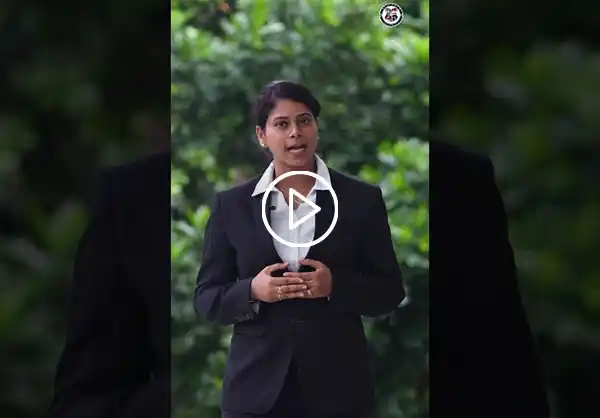Admission Enquiry
HELPLINE:
+91 96060 48543/+91 80 4619 9048
Programs
Bachelor of Law (LL.B.)
Overview
With a research–focused approach, the Alliance School of Law presents a world–class LL. B. programme, approved by the Bar Council of India, meeting all essential standards for the highest quality learning. Our meticulously designed programme, guided by experienced faculty, emphasizes a robust foundation in law through rigorous study, training, and research.
Regular moot court sessions and conclaves, featuring eminent lawyers and corporate leaders, are integral to the programme, exposing students to real–world scenarios. The curriculum provides enriching experiences, fostering key skills for success in the legal field. Students also gain access to centres of excellence, engaging in activities such as publications, newsletters, drafting, litigation, and conveyancing.
Duration
3 Years (6 Semesters)
Commence of the course
Course Duration
Mode of Study
Eligibility
Bachelor’s degree in any discipline with a minimum of 45% marks (40% for SC / ST) in aggregate from a recognised university.
Key Features
Delivered by highly experienced academics from top law institutions
Regular expert sessions and conclaves with eminent lawyers of the country
Research assistance and avenues under different research centers
Robust moot-court sessions and visits to courts
Academic and internship tie-ups with top corporate and law firms
Placement assistance in top multinational corporations
FAQ's
Yes. LL. B. is a Bachelor of Legislative Laws degree. An LL. B. programme is an undergraduate degree that spans up to 3 years across 6 semesters. The degree comprises subjects like Legal Methodology, Constitutional Laws, Jurisprudence, Company Law, Taxation Law, and more, equipping students to practice careers in law across several legal disciplines.
An LL. B. is the standard undergraduate law degree that covers all the core subjects required to practice law. An LL. B. (Hons.) includes the same core subjects but adds extra papers, research, and specialization for deeper study. Both qualify students to practise law.
No. LL. B. is an undergraduate degree that is to be pursued after graduation. To be eligible for an LL. B. degree, you must complete an undergraduate programme. If you want to pursue law after 12th, it is better to opt for integrated law degrees like B.A. LL. B. or B.B.A. LL.B.
While both equally qualify you to practice law, the only difference is that the 3-year LL. B. programme purely focuses on law-related subjects, while the 5-year integrated course integrates any stream, like arts or business, with the law curriculum. The 3-year LL. B. course can be pursued only after an undergraduate programme, while a 5-year LL. B. course can be pursued after 12th.
A bachelor’s degree in any discipline with a minimum of 45% marks (40% for SC / ST) in aggregate from a recognised university qualifies you for an LL. B. degree. For more details, you can refer to the, LL. B. Programme Page.
No, entrance to Alliance University's LL. B. programme does not require a CLAT score. Candidates must fill out the official application form provided by the university to be admitted to the LL. B. programme. Following that, they will take the online personal interview round and the Alliance Common Law Admission Test (ACLAT). Alliance University finds and develops future lawyers through an open, merit-based admissions process.
The 5-year integrated course incorporates any stream, such as business or the arts, with the law curriculum, whereas the 3-year LL. B. programme only focuses on law-related studies. Despite this, all programmes are equally qualified to practice law. A 5-year LL. B. degree can be pursued after 12th grade; however, a 3-year LL. B. course can only be pursued after a UG programme. The 5-year course is best for students who wish to begin their legal education immediately after school and seek jobs as judges, lawyers, legal advisors, or policy analysts, while the 3-year course is best for graduates hoping to enter the legal profession, judiciary, or civil services.
Internships are an important feature of both the 5-year and 3-year law programmes. It is mandatory for the 3-year law students to complete a total of at least 12 weeks of internship. Students are helped by a dedicated team of industry-connected professionals in the Office of Career Advancement and Networking, who help them in finding, applying for, and preparing for internships.
Yes, the 3-Year LL. B. (Hons.) is a full-time programme spread across 6 semesters. You can refer to the LL. B. Programme Page for more details.
The LL. B. programme at Alliance University is unique because of its curriculum and faculty. The curriculum offers additional specialisations and research opportunities while the faculty are from renowned institutes and integrate who carry industry-rich experience and knowledge, and integrate them into the classroom making the sessions interactive and engaging. The curriculum emphasises practical learning through moot courts, internships, and case-based teaching, alongside strong industry and international exposure. The University also provides modern infrastructure, foreign language courses, and dedicated placement support, making it stand out among private law schools.
The entrance exam at Alliance University, ACLAT, Alliance University Common Law Aptitude Test, followed by an online personal interview, is conducted online, as Alliance University follows a hassle-free selection process focusing on reaching out to candidates across the country.
Indeed. Alliance University provides students access to 1000+ recruiters. The 3-year LL. B. students will receive placement support from the placement cell, CAN (Career Advancement & Networking) office. However, their placement depends on their individual academic records and internship experience. According to BCI, 18 weeks of internship is mandatory for an LL. B. graduate to apply for placement.
LL. B. graduates at Alliance University can pursue corporate roles in legal advisory and compliance, government positions in judiciary, regulatory bodies, and ministries, or litigation careers in courts, arbitration, and law firms supported by moot courts, internships, and expert mentorship.
Yes, LL. B. graduates can start practicing as advocates after completion of the course. An enrolment towards the State Bar Council, along with a passing certificate from AIBE (All India Bar Examination).
Yes. The LL. B. degree at Alliance University is approved by the Bar Council of India (BCI). The Alliance School of Law holds the 20th Rank according to the NIRF 2025.
Contact for Admissions
-
 Call Us
Call Us+91 96060 48543, 08046199048
-
 Email Us
Email Uslaw@alliance.edu.in





